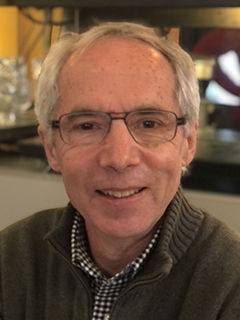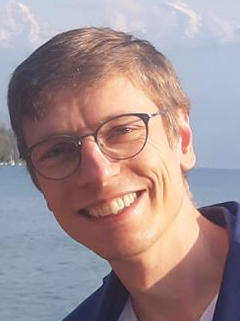The DEEP-SEE project is one of the projects selected by the European Research Council (ERC). It is led by Alain Manceau, Geochemist, emeritus researcher at the Chemistry Laboratory. Stefan Steinmann, researcher at the Chemistry Laboratory, is the scientific leader.
ERC Advanced grants enable scientists to carry out groundbreaking projects that open up new avenues in their disciplinary field.
PROJET DEEP-SEE
Fathoming SEquestration and Enrichment of metals in DEEP marine deposits with novel micro-X-ray emission spectroscopy
ERC Steinman


Alain Manceau, Geochemist, CNRS Research Director emeritus attached to the Chemistry Laboratory - project leader
Stephan Steinmann, Computational Chemist, CNRS Researcher at the Chemistry Laboratory - scientific leader
Rare earth elements (REE) and transition and post-transition metals (TM) are essential to modern life, yet we know little about how they concentrate at Earth’s surface, especially on the seafloor, which holds vast reserves. The DEEP-SEE project will shift paradigms on marine metal deposits from chemical composition and resource inventories to a holistic view based on atomic-scale observations and modeling. This research will determine geochemical processes that give rise to some of the highest metal partitionings in supergene ores. First, crystal chemistry of 3+ REE in biogenic vs. authigenic sedimentary apatite is proposed as a new proxy for the paleoceanographic enrichment setting with the potential to become an indicator for future exploration sites. Second, crystal chemistry of 3+ REE will elucidate the scavenging history of Fe-Mn crusts and corresponding evolution of seawater REE as recorded in growth layers over millions of years. Third, investigation of the redox chemistry and mineralogy of Fe-Mn crusts and nodules will explain how the redox-sensitive metals Co, Ce, Tl, and Pt are enriched from 109 to 106 times relative to seawater. To date, these processes have been impossible to interrogate because of analytical challenges posed by the multi-elemental composition and mineralogical heterogeneity of seafloor deposits. A promising approach for tackling these challenges is new micro-X-ray emission spectroscopy using a unique high-luminosity compact XES spectrometer at the European Synchrotron Radiation Facility. Installation of the spectrometer on a microfocus beamline under construction on the new 4th generation ESRF X-ray source will provide a momentous gain of at least 100 in detection limit and unprecedented sensitivity and precision in the analysis of REE and TM. More broadly, the research will show how new knowledge about Earth processes can be obtained with a fresh look at individual trace elements previously inaccessible by crystal chemical study.
 ERC Consolidator Grants
ERC Consolidator Grants
The ERC Consolidator Grants are awarded to outstanding researchers of any nationality and age, with at least seven and up to twelve years of experience after PhD, and a scientific track record showing great promise. Research must be conducted in a public or private research organisation located in one of the EU Member States or “Associated” Countries. The funding - up to €2 million per grant, plus in some cases an additional €1 million for start-up costs - is provided for up to five years and mostly covers the employment of researchers and other staff to consolidate the grantees' teams.





